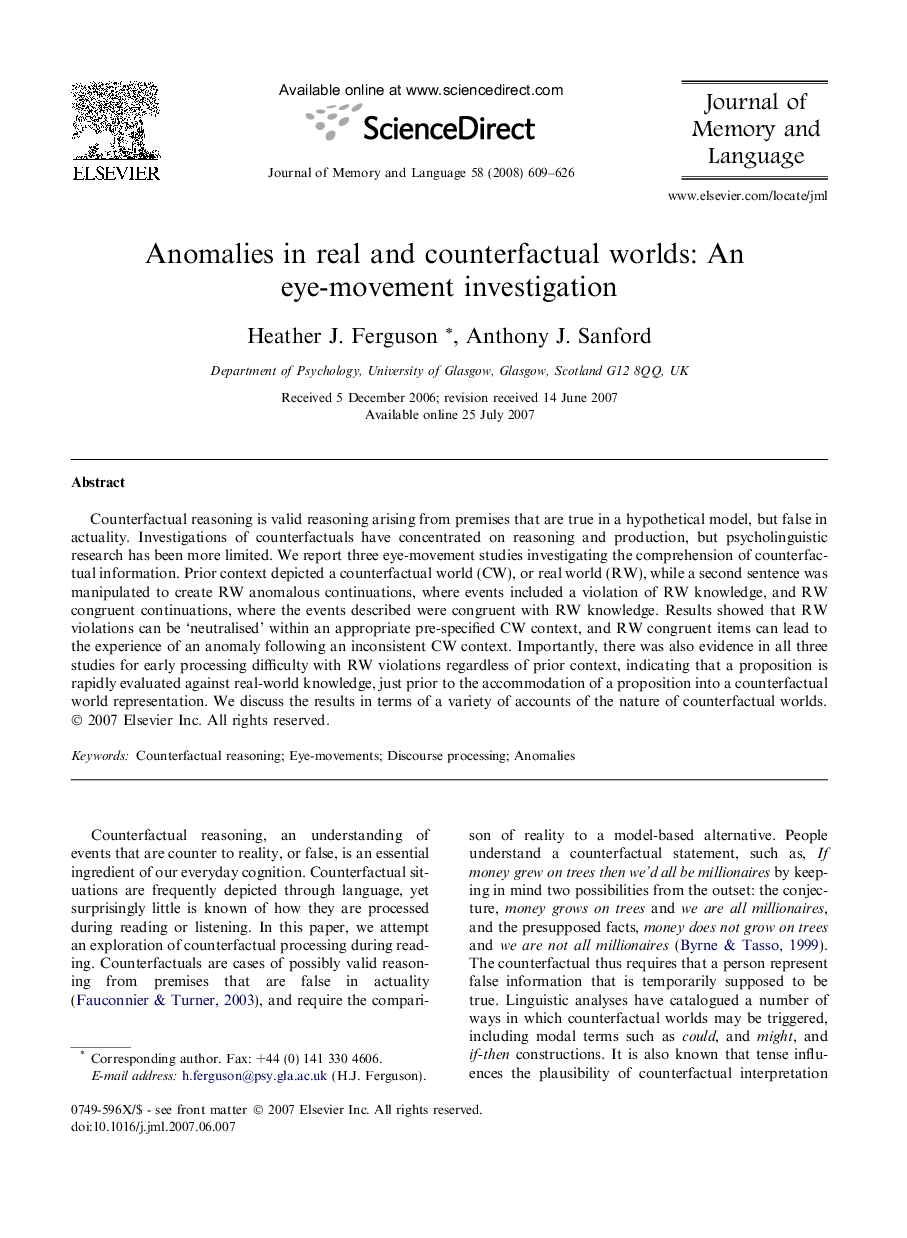| Article ID | Journal | Published Year | Pages | File Type |
|---|---|---|---|---|
| 932215 | Journal of Memory and Language | 2008 | 18 Pages |
Counterfactual reasoning is valid reasoning arising from premises that are true in a hypothetical model, but false in actuality. Investigations of counterfactuals have concentrated on reasoning and production, but psycholinguistic research has been more limited. We report three eye-movement studies investigating the comprehension of counterfactual information. Prior context depicted a counterfactual world (CW), or real world (RW), while a second sentence was manipulated to create RW anomalous continuations, where events included a violation of RW knowledge, and RW congruent continuations, where the events described were congruent with RW knowledge. Results showed that RW violations can be ‘neutralised’ within an appropriate pre-specified CW context, and RW congruent items can lead to the experience of an anomaly following an inconsistent CW context. Importantly, there was also evidence in all three studies for early processing difficulty with RW violations regardless of prior context, indicating that a proposition is rapidly evaluated against real-world knowledge, just prior to the accommodation of a proposition into a counterfactual world representation. We discuss the results in terms of a variety of accounts of the nature of counterfactual worlds.
